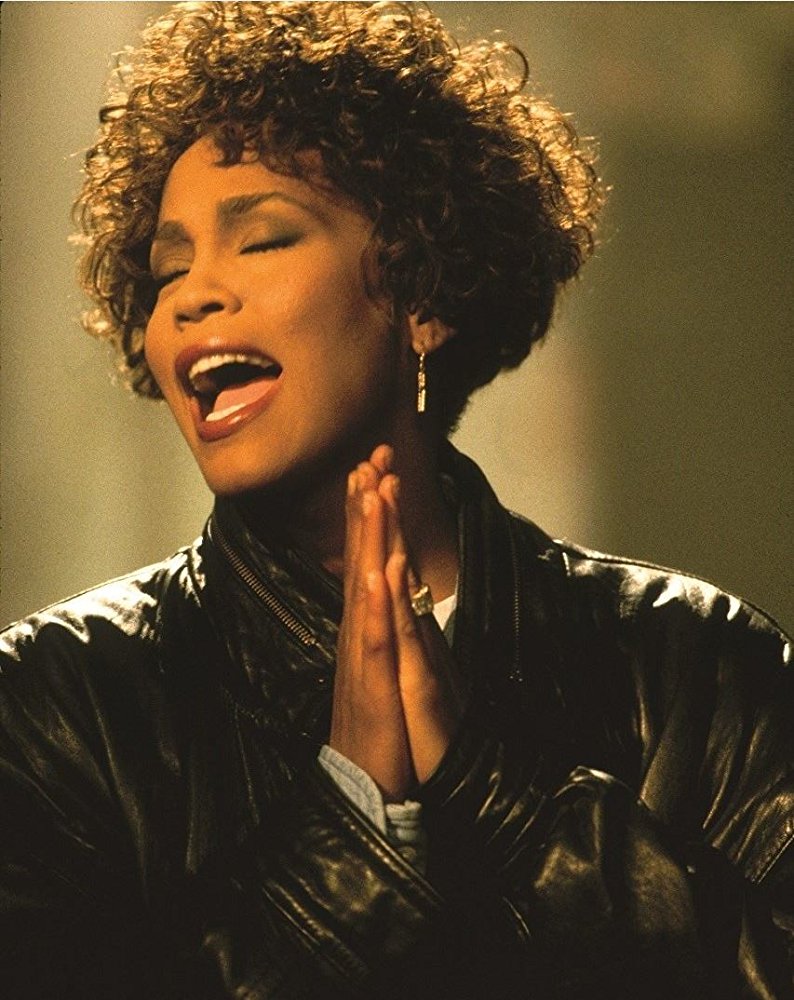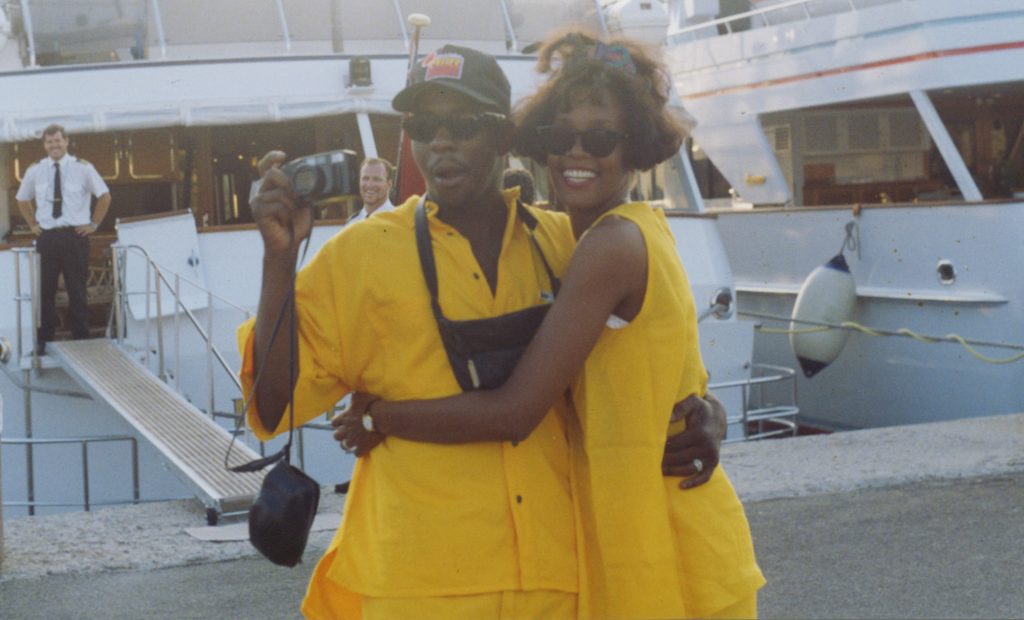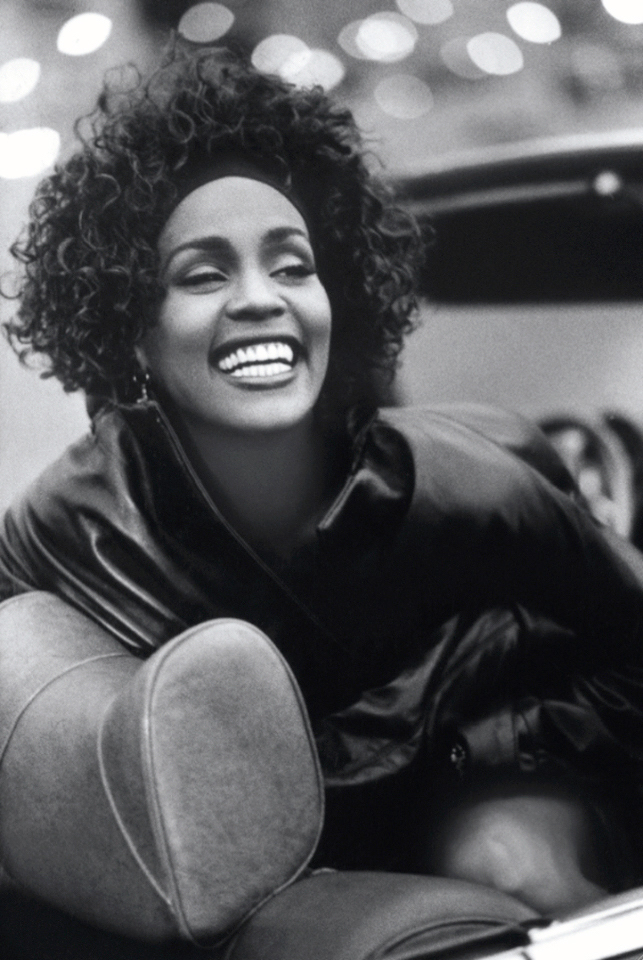
Photo courtesy: The Estate of Whitney E. Houston
The new documentary Whitney, about the life and death of Whitney Houston drops numerous bombshells about the singer’s troubled life and family. Oscar-winning Scottish director Kevin Macdonald (One Day in September, The Last King of Scotland) takes the audience on an emotional rollercoaster in this honest, raw, sometimes incredibly frustrating film that is a must-see for every Whitney Houston fan. I sat down with Macdonald to explore the details behind telling this powerful story.
When a good director decides to make a documentary, the first rule is to make a compelling, entertaining movie. It must be cinematic in every way a narrative film should be, or else why use the film medium? Macdonald agrees, but says it can be challenging.
“One of the things that’s tricky about doing biographical documentaries,” says Macdonald, “is that you have all these facts, all this context, but you want the film to have the same tension, be entertaining, tell a story and follow a structure like in a script. I discovered lots of great things, found lots of footage and wanted to just put it all in there, but you have to hold yourself back because you’re not creating an encyclopedia about Whitney Houston. I’m not writing a book. I’m trying to make a two-hour movie, which is already probably too long, that will tell a story and satisfy people while at the same time telling them the detail and the messiness of real life.”

Photo courtesy: The Estate of Whitney E. Houston
So, essentially, Houston becomes the protagonist in the film, but Macdonald says it was only during the last part of the editing process that he started thinking of her that way. “For most of the edit, you’re collecting stuff and I guess that’s the equivalent of writing your screenplay.”
He says he went into the project deliberately not knowing that much about Houston and when he was first approached with the possibility of directing, he wasn’t very interested.
“I didn’t really have any sympathy left for her. I sort of liked her music back in the day, but I’d gone off her, like many people, because of this relentless self-destructiveness she had.”
It took a conversation with Houston’s long-time agent, Nicole David, to change his mind. “She said, ‘I really want you to make this movie because I loved Whitney, but I never understood her. I think you could help me and lots of other people understand her.’ It was that invitation to go on a quest, to do an investigation that got me interested. So then, I thought okay where do I start?”
He started by doing three days of interviews with Houston’s family and friends in New York.

Photo courtesy: The Estate of Whitney E. Houston
“I looked at the interviews and thought, well, what does this mean? It didn’t have much of a sense of story.”
But after collecting all the archival footage he could find, he put together a four-hour rough cut. “At that point you can start shaping Whitney into a protagonist and shaping it in a way that’s a satisfying story.”
But the trickiest part of telling Houston’s story and putting it into acts was determining which parts of her drug addiction and multiple attempts at sobriety to include. “One of the problems with someone who’s an addict is that they go on and off drugs. Do you document each time? It can feel repetitive. So it was only the last few months where I found the structure.”
There is an old tried and true rule in screenwriting: create a simple story about complex characters. Whitney certainly follows that rule. Macdonald talks about the time he interviewed Houston’s half-brother, Gary Garland.
“He was very aggressive at first, he didn’t want to be there. He said, ‘Why does everyone ask all these questions about Whitney? She was so simple and easy to understand!’ I said, ‘I don’t think so, Gary.’ But by the end, I did feel that it was a very simple story in some ways. It’s the story of someone who doesn’t know who she is. Because she doesn’t know who she is, how can she deal with all these problems that are thrown at her? I think the reason she didn’t know who she was is because her emotional development stopped at the time of the sexual abuse as a child.”
In the film, two people reveal that Houston claimed she was sexually abused by her first cousin, Dee Dee Warwick, who was 20-years her senior. The abuse happened when Houston was nine to 11-years old. Houston never told her mother about it.
“I think Whitney really wanted to go back to her childhood before everything went wrong.”
In addition to abuse, Houston was bullied at school for having light skin. With her mother (also a singer) traveling much of the time, her only safe-haven was at her church. But when her mother was caught having an affair with the church pastor, her refuge was blown to bits.

Photo courtesy: The Estate of Whitney E. Houston
“When you’re already damaged like her, that’s very difficult. Her entire life, I think she was yearning to go back. That’s why I play that song “Home” in the beginning and at the end of the movie. She wanted to go back to a time when things were simpler and maybe we all feel like that a little bit.”
For Houston, her story should have been a coming-of-age story about a woman, tested by fame and drugs, who eventually overcomes those obstacles and discovers her true self. But sadly, her story ends in tragedy – not only for her, but also for her daughter Bobbi Kristina. Just like her mother, Bobbi Kristina was found face down in a bathtub in 2015. After seven months of being in a coma, she died at the age of 22.
Like all great artists, Whitney Houston created music from personal pain. And for Macdonald, her art is what the movie is all about.
“I think the only point in making a movie like this is the art. I didn’t make this film because I want to sit and talk to journalists about her relationship with Bobby Brown. I did it because she was a great artist and making the film helps you understand where that art comes from. It also helps you move on from all those questions and rumors about her. When you put all the personal stuff aside, you’re left with the work.”
Whitney opens in theaters July 6.




1 Reply to "Whitney explores the demons behind Houston’s angelic voice"
John Connell June 27, 2018 (12:03 pm)
A fascinating article. Interesting to see how Kevin was drawn into the material and to see how he tackled the problem of a bio’s mountain of information that must be cut and reformed into story mode. I’ve written a couple of scripts that tackled the same difficulties. Thanks. Very interesting.